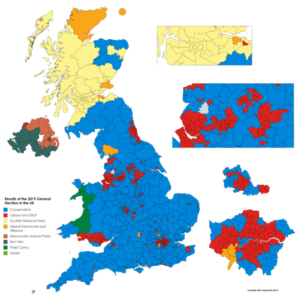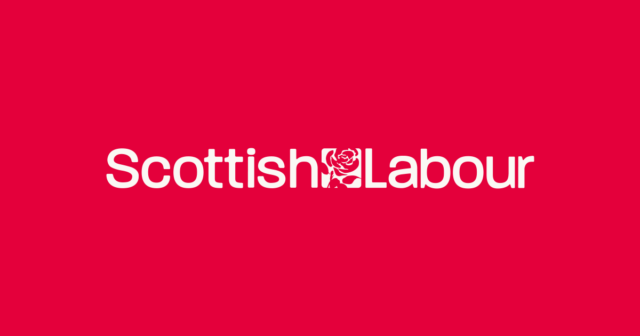The performance in Scotland for the major parties in recent election cycles is a major shift from pre-2000 politics.
The Conservative Party, in years prior to 1997, would receive around 10 Scottish seats per election cycle, with certain years such as 1979 and 1983 returning significantly more seats than that, if the Conservative platform was particularly strong. However, post-1997 (and New Labour), the Scottish Conservative party has been a shambles, lucky to receive more than 1 seat per election cycle.
So then, how on Earth did the Conservative Party go from winning around 10 Scottish seats per election cycle until 1992 to 0 seats in ’97 and then 1 seat in every election after 2001 until 2017? Labour is the answer, more specifically Tony Blair.

Attribution-ShareAlike 2.0 Generic (CC BY-SA 2.0)
Tony Blair was many things – young, ambitious, forward-thinking and very, very good at telling people what they wanted to hear.
In 1997, he won one of the largest Labour victories ever, effectively allowing him to govern with relative ease due to his staggeringly large majority. What did he do with this majority? He proceeded to break the British constitution, take us to war and set us on a path leading to the 2008 financial crisis.
His governing style was successful for a while, then in 2005 his majority was slashed and it was obvious that people weren’t happy. We know the rest of the story: New Labour falls after Ed Miliband fails to keep it on life support, and the Corbyn years make Labour unelectable, leaving their seats for the SNP to take.
New Labour was supposed to give the Scottish people a moderate, relatable government that was going to listen to their concerns and remedy all their ills. Then, once that didn’t work, Ed Miliband and his bacon-sarnie eating, interview-stammering, non-convincing demeanour stepped on to the scene and Labour was officially in trouble. The problem was that people in Scotland still broadly wanted moderate left policies, but with Miliband at the helm, Labour was unelectable (which would only get worse after Corbyn came to power).
So, it’s 2015 and you can’t vote Labour because their leader is not Prime Ministerial material – what do you do? Well, the logical answer was to vote for a different party that most fits your worldview: the Lib Dems, obviously.
But 5 years earlier, the Lib Dems hadgot into government and then proceeded to break their flagship election promise, so you couldn’t vote for them either. So what do you, dear voter, decide to do? You decide to vote for the other centre-left party, a party that broadly supports all the same policies as Labour but, instead of uniting the workers of the world, this party wants to destroy our nation! “So what?” You think, “The SNP aren’t going to win a majority, I just need to show the Tories I don’t support them.” So you put a little ‘X’ in the box marked SNP and go on with your day.
The problem is that this happened in every polling station in every constituency in Scotland, bar three. The SNP gained a staggering majority and kept the idea of independence alive, even though it should have been dead and buried after the 2014 referendum.

So, what is to be done? Well, Labour losing Corbyn was a start. A moderate Labour is the only kind that wins, and they steal seats from the SNP while they do it. The Lib Dems cater to the middle-class voters who aren’t quite in favour of Labour and the SNP’s more radical policies.
The Conservatives are a choice mainly separate from policy overlap with the SNP or Labour, and thus represent the alternative to both. With the upcoming 2021 Scottish Parliamentary elections, it will be important for all three major parties to have strong platforms so as to block the SNP from ruling Scotland for another five years. An SNP loss next year would also shut down calls for independence for a while, if not indefinitely. It’s also worth noting that, unlike their southern party members, Scottish Labour are staunch Unionists.




